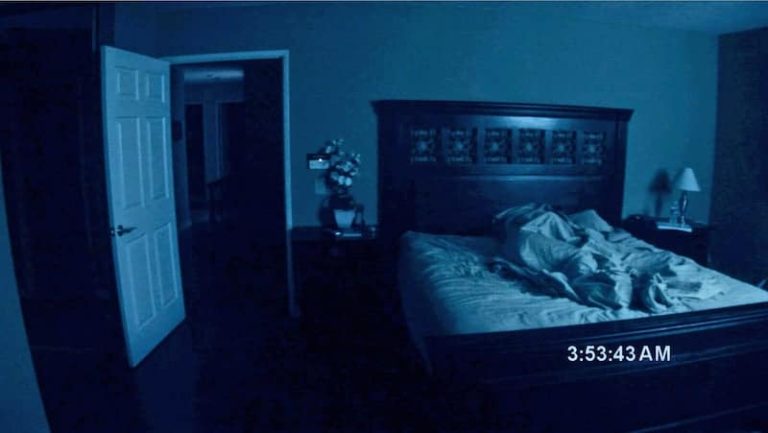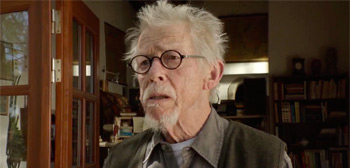MORTAL: A Grim Origin Story With Emotional Charge
Superhero films, in general, showcase the extraordinary faculties of a superhuman, who is naturally in need of a worthy adversary. Although, as seen in Chronicle and Brightburn, sometimes one’s most dangerous adversary is oneself. Chronicle and Brightburn have unveiled a bleaker side to the comic-book formula, wherein the powerful protagonist is their own worst enemy. And André Øvredal’s Mortal (Torden) is next to add to the list of capricious heroes pushed to the edge, or swayed by the unpredictable nature of their superhuman abilities.
Mortal follows the adventures (or misadventures) of Eric Bergman (Nat Wolff), a young American man who lives in isolation somewhere in Norway. When a confrontation with a local man goes awry, Eric is brought in for questioning by the local police. Unable to acquire any answers to the incident, a psychologist named Christine (Iben Akerlie) is brought in to perform an evaluation. It isn’t long until Eric unwittingly reveals his god-like powers, leaving the interrogation room burnt and marred. Christine can’t believe her eyes, but she’s the only one willing to calmly assist Eric in times of immediate peril. Eric and Christine strike a chord right away, and they both venture on a precarious quest to exhume the crux of Eric’s god-like powers while evading the authorities.
Considering that the pandemic has delayed the theatrical release of all superhero projects this year, Mortal would have many comic book fans intrigued by the mere concept of the film. However, Mortal is an atypically sedate thriller that deals with the common “superhero” in ways that ground the narrative within the realm of emotional and spiritual believability. Amongst the lightning-induced chaos that’s wielded by the hands of the distressed, omnipotent protagonist, there’s a tempting discourse on religion, identity, and free will.
Not Your Ordinary Superhero Origin Story
The bedraggled, discomposed, and cryptically powerful Eric resides in a mountainous region of Norway, whose godly facilities have made him a self-avowed pariah. Suffering in silence, Eric has a mysterious burn on his leg, and he’s overly fidgety. Clearly, Eric is mired in a past tragedy, and petrified of what would happen if he rejoined society.
One day, Eric is walking on the side of a road when a driver stops their car and confronts Eric, determined to stir trouble. The confrontation turns for the worst when Eric’s unstable powers result in the local boy’s death. Since there were several witnesses, Eric is eventually found by police chief Henrik (Per Frisch) and questioned for the boy’s unusual murder, but Eric won’t speak to the police, and his identity remains unknown.
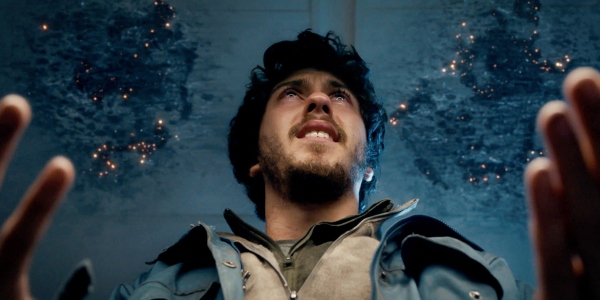
Henrik calls in a young psychologist named Christine to evaluate the stranger, and after experiencing his electric/heat ebullitions firsthand, she comes to the conclusion that these episodes stem from a tragic incident at a farm. As Eric continues to leave an accidental body count behind, Christine tries to teach him how to keep his emotions in check, and only then can he learn to control his powers.
It’s easy to become immersed in Norway’s stunning scenery (deep fjords, primordial forests, and imposing mountains), especially when Roman Osin‘s (The Autopsy of Jane Doe) splendid cinematography yields unfussy long shots that show the scenery in its pure beauty. Sadly, Eric is unable to relish the beauty, as he has a lot on his mind. Boasting an enigmatic disposition and a curt vocabulary, Nat Wolff wholly embodies the peculiarity and suspicion of Eric, delivering an impressively subdued performance that’s low on words and shrouded in mystery.
Eric’s relatability and likability run thin as a result of his inscrutability, but that’s also the point. Every time Eric unintentionally takes a life, he feels quiet remorse. At the start of the film, it is unclear how many lives Eric has already taken, and that alone explains Eric’s self-imposed seclusion. Despite exercising so much power, Eric has never been more powerless in his connections with other people. That is until he meets Christine, the young psychologist who instantly feels empathy for Eric, and makes it her mission to aid him through his arcane plight. Similar to Nat Wolff, Iben Akerlie delivers a finely withdrawn performance as Christine.
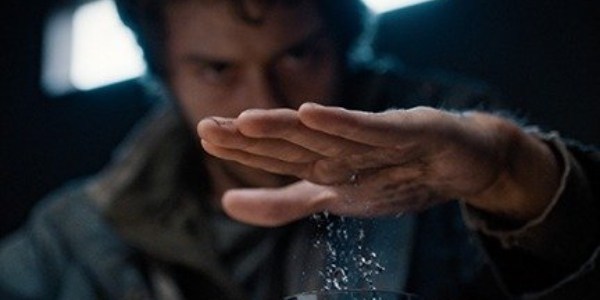
After a series of unfortunate episodes, Eric and Christine are on the run from authorities. Expectedly, their close proximity and inexplicable attraction to one another leads to a plot-altering romance. Regrettably, their romantic relationship leaves much to be desired. It isn’t that Nat Wolff and Iben Akerlie lack chemistry, but they aren’t given the time to grow their relationship in an authentic, unhurried manner.
Mortal is a mildly paced, exceptionally solemn origin story that is at times purposefully ill-defined and partial. Eric has a limited understanding of his powers, and since the film is shot from his perspective, audiences are just as morally and intellectually bemused as Eric. But the film divulges enough Norwegian background to somewhat underscore the kernel of Eric’s abilities. Although, it is fairly irksome that an American has assumed powers that originate from Norse mythology.
Mortal Triggers Conversation On Power & Identity
For what first appears to be a comic book film, Mortal doesn’t necessarily soar in spectacle, and in no way does it prioritize action. The unassuming visuals — typically a sporadic lightning bolt, a smoldered, sweltering burn mark, or a muster of forbidding clouds — aren’t always the most convincing, let alone striking ingredient. Howbeit, the paucity of full-blown, CG-spectacle draws attention to the consequential fears and themes surrounding Eric’s newfound powers, and how they influence public perception, for better or worse.
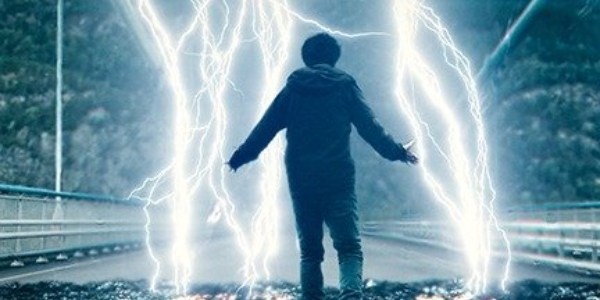
As Eric’s abilities are broadcasted to the world, some laud him as a god or savior, while others fear that he’ll spread false hope to pious folk or he’ll be society’s downfall. There’s no way to know how society would react to the seemingly unthinkable or illogical. Religion is shared by people around the globe — but it is also fought over, and contemplated by those who may fear the uncertainty of death or question their self-worth. Whilst Mortal isn’t too introspective, it does have command over how a select few individuals would respond to Eric’s almighty presence.
Bjørn (Per Egil Aske) is on the warpath to obtain retaliation against Eric for his son’s death, while a U.S. Embassy agent (Priyanka Bose) is afraid of how Eric’s presence will affect the religious people around the world. Mortal is a dignified attempt to enliven the ramifications associated with being pressured into a role that entails controversy and, worst-case scenario, its fair share of violence — especially when the person in the role didn’t ask for it.
Mortal: Conclusion
André Øvredal’s Mortal is a mature and sober take on the superhero origin story, favoring emotional conflict over physical conflict. Despite the undeveloped romance between Eric and Christine enfeebling the emotional stakes later into the film, André Øvredal’s deliberately measured, equivocal approach to heroism and villainy is a refreshing departure from the superhero film we’ve come to expect in this day and age.
Have you seen Mortal? If not, are you interested in seeing it now? Let us know in the comments!
Mortal was released in U.S. theaters on November 6, 2020
Watch Mortal
Does content like this matter to you?
Become a Member and support film journalism. Unlock access to all of Film Inquiry`s great articles. Join a community of like-minded readers who are passionate about cinema – get access to our private members Network, give back to independent filmmakers, and more.
Join now!


